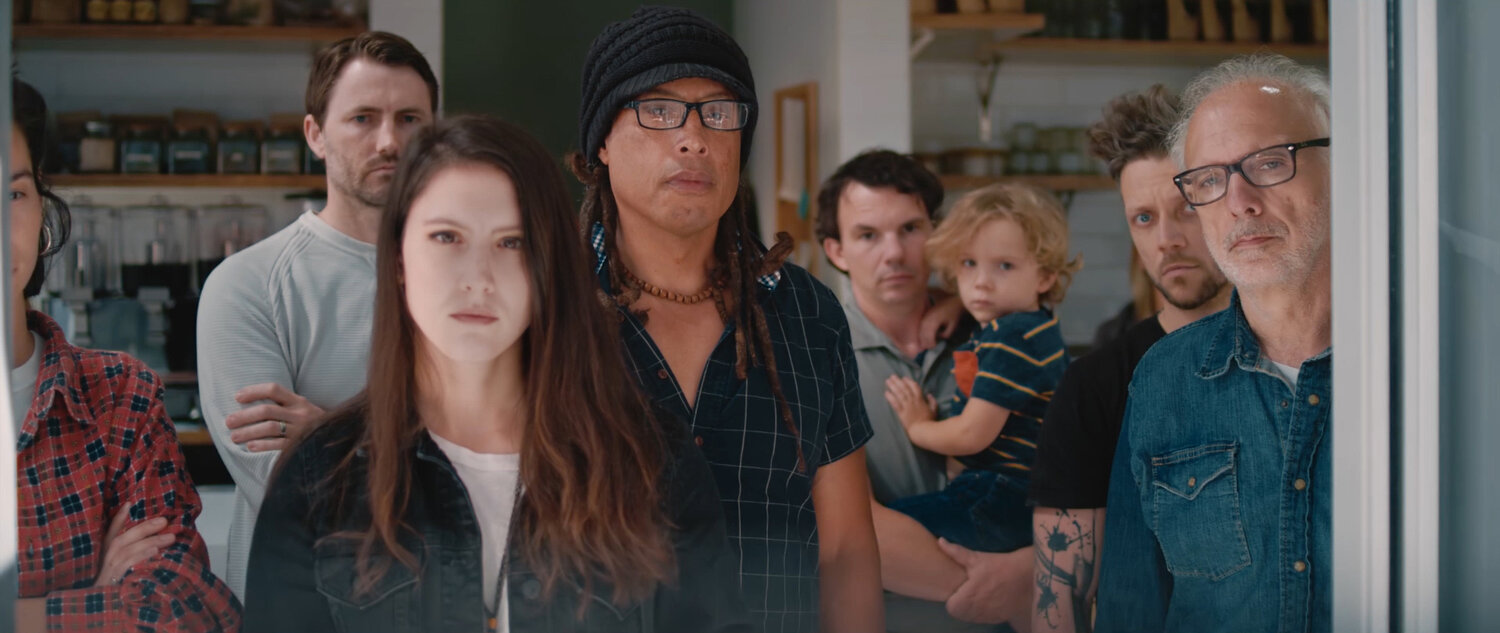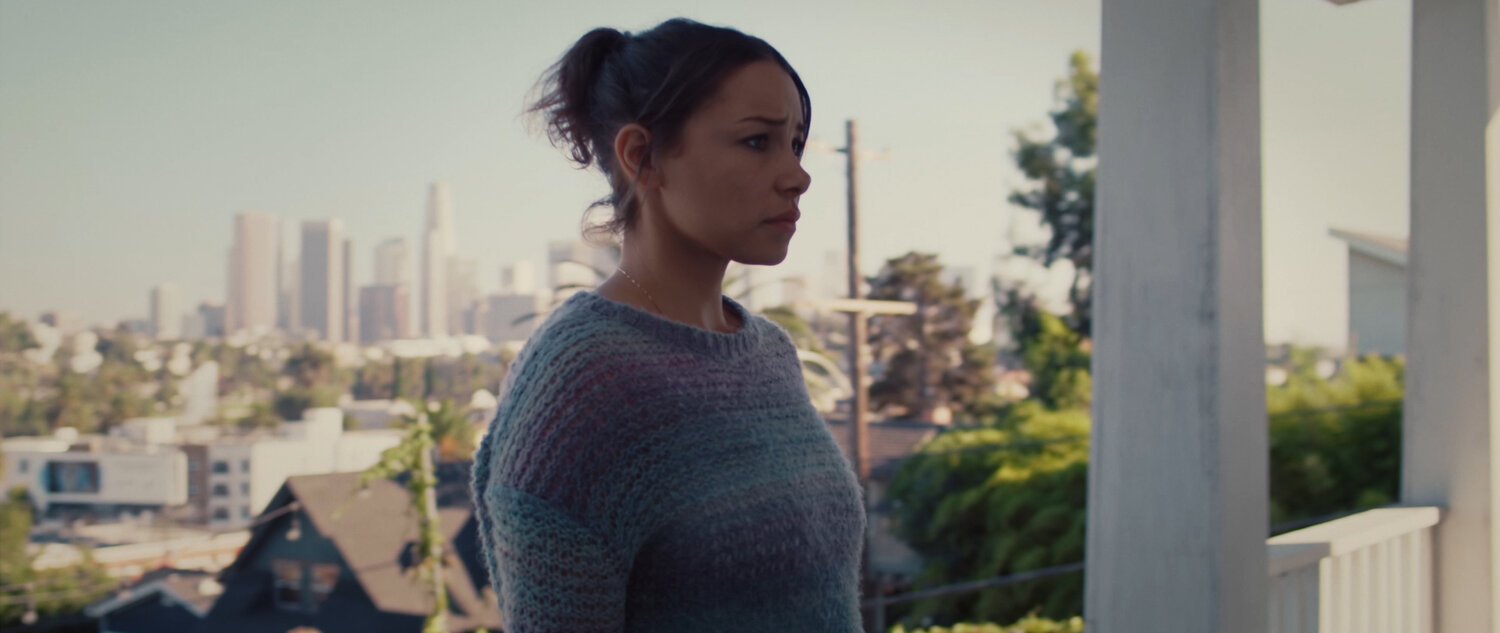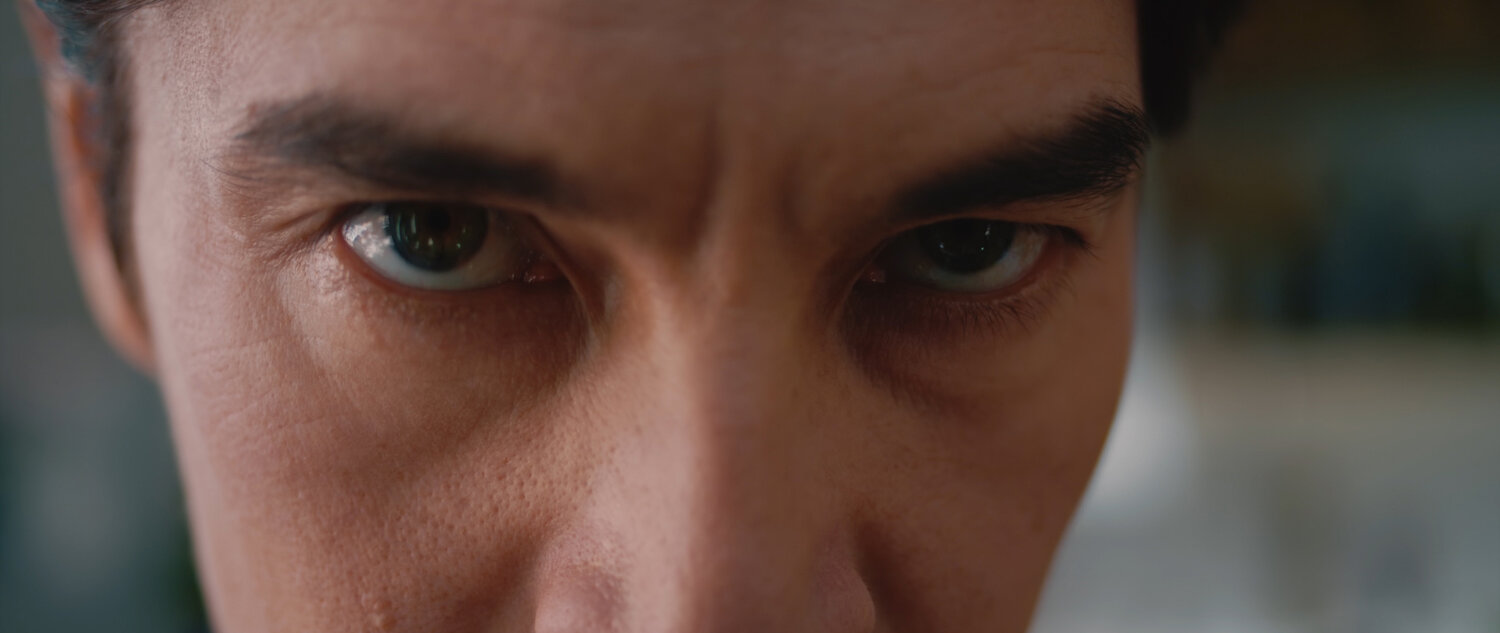When a woman is shoved out of a cafe by a suicide bomber moments before he detonates his grenades, she struggles with survivor’s guilt as she attempts to uncover the reason why her life was spared when so many others were taken.


Director’s Vision
I was intrigued to direct Split Second from the first moment I read the screenplay by Tiziana Giannmarino in that it resonated with my own struggles with grief. Whether it’s a newsworthy global tragedy or an intimate family emergency, everyone at some point in their lives will experience intense sorrow. It is universal, and it has the ability to stop us in our tracks. In the case of our protagonist, Emily Burkhardt, being the sole survivor adds an additional layer of guilt. The shame of survival can be difficult to shake and has the ability to keep someone stuck in a depressive loop of the knowledge that they could have done more.
Split Second focuses on the aftermath of a senseless bombing of a Los Angeles cafe. It was important to me to see the change in our protagonist before and after the event. I wanted the cafe to be filled with life and movement which is why we shot the sequence as a single long take on a steadicam rig. This was the most ambitious shot of the entire film, and after lucky take number thirteen, we finally pulled it off. After the explosion, Emily is stuck in time, afraid to leave the house, and unable to connect with her husband. Once in the house, I wanted the audience to feel stuck in a similar way that Emily does. To help accomplish this, we filmed on a tripod with static shots, and minimal movement. Unable to move forward in time, unable to connect to the outside world.
Many films addressing news-worthy tragedies whether real or fictional, focus on the attacker. We intentionally broke stereotypes whenever possible, and instead chose to focus on one woman’s survival journey. Instead of fixating on the violence of the attack, we wanted to see the human that’s left picking up the pieces.
Grief is a difficult subject to film. Our talented lead actor, Jessica Parker Kennedy, did a beautiful job of embodying these emotions with minimal dialogue. As someone who has struggled with depression, I have never been able to move on by covering it up. The only way out is to acknowledge it and let time pass. My hope for audiences is that they are able to address their own feelings of grief and feel connected through our collective human experience.






